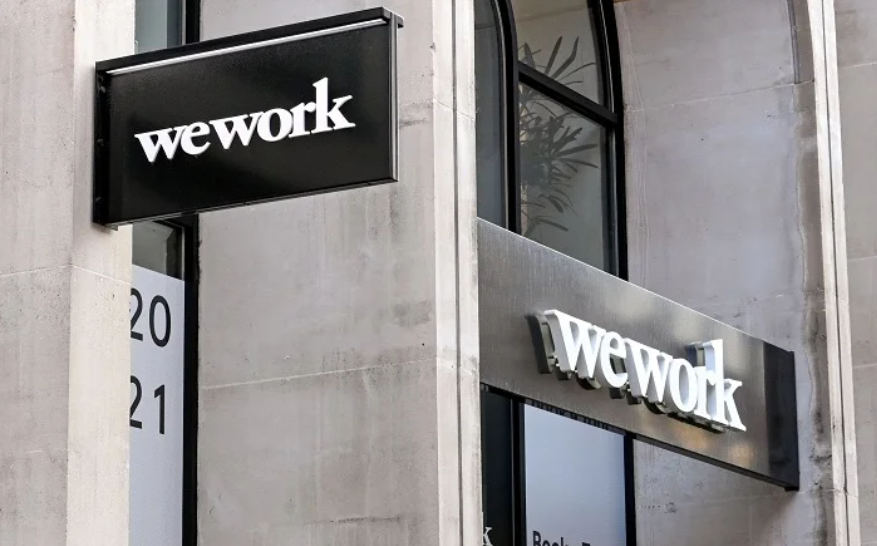WeWork, once a poster child for the booming flexible workspace industry, is now grappling with a crisis of epic proportions. As the sun sets on its illustrious past, the company finds itself on the brink of bankruptcy, sending its shares plummeting nearly 50% to an all-time low. The story of WeWork’s meteoric rise and catastrophic fall serves as a cautionary tale of corporate ambition, questionable financial decisions, and the perils of overextending.
The New York-based firm was once valued at a staggering $47 billion, making it one of the most highly prized startups in the world. Its charismatic co-founder, Adam Neumann, was celebrated as a visionary disruptor in the real estate and office space industry. However, the exuberance of the early years has given way to a harsh reality. WeWork’s current market capitalization hovers at a paltry $121 million, a far cry from its once-soaring valuation.
The impending bankruptcy filing looms as a culmination of a series of setbacks for WeWork, with SoftBank, one of its key backers, standing at the center of the storm. The company’s initial public offering (IPO) plans disintegrated in 2019 amid doubts about its business model, which involved taking long-term leases on commercial properties and subleasing them on a short-term basis. When WeWork finally went public in 2021, it did so at a significantly reduced valuation, a shadow of its former glory. This development has cast a dark cloud over SoftBank, which had invested billions in an attempt to rescue the beleaguered company.
Now, WeWork is contemplating filing for Chapter 11 bankruptcy in New Jersey, a move that has sent shockwaves through the business world. The decision to withhold interest payments on senior notes due in 2025, even though the company possesses the necessary funds, is a stark indicator of the dire financial straits in which it finds itself. WeWork had previously issued a warning of potential bankruptcy in August, and it seems the moment of reckoning has arrived.
As the dust settles, industry experts are left wondering about the repercussions of WeWork’s downfall. “Whether or not WeWork can reach a short-term accommodation with bondholders to stave off a near-term bankruptcy, it likely holds many long-term office leases that will need to be restructured or written off,” observes Jason Benowitz, a senior portfolio manager at CI Roosevelt Private Wealth in New York. WeWork’s extensive presence in major urban office markets means that its failure or restructuring could have far-reaching consequences for the broader real estate and office space industry, affecting industry fundamentals.
WeWork’s stock, once the darling of investors, now languishes at a historic low of $1.18. Its value has eroded by a staggering 96% over the course of a single year, serving as a stark reminder of the volatility inherent in the world of startups and high-risk investments.
The cautionary tale of WeWork offers valuable lessons for entrepreneurs, investors, and the business world at large. It underscores the importance of sustainable growth and financial prudence, even in a climate of ambitious expansion. WeWork’s rise and fall serve as a stark reminder that success can be fleeting, and the consequences of overextending can be devastating.
As the once-mighty WeWork teeters on the precipice of bankruptcy, its story will serve as a sobering reminder of the perils that accompany unchecked ambition and risky financial strategies. The fall of WeWork is a stark lesson for us all, emphasizing the importance of sound financial management and a sustainable business model, even in the most ambitious endeavors.
(Source: CNBC | Reuters)









